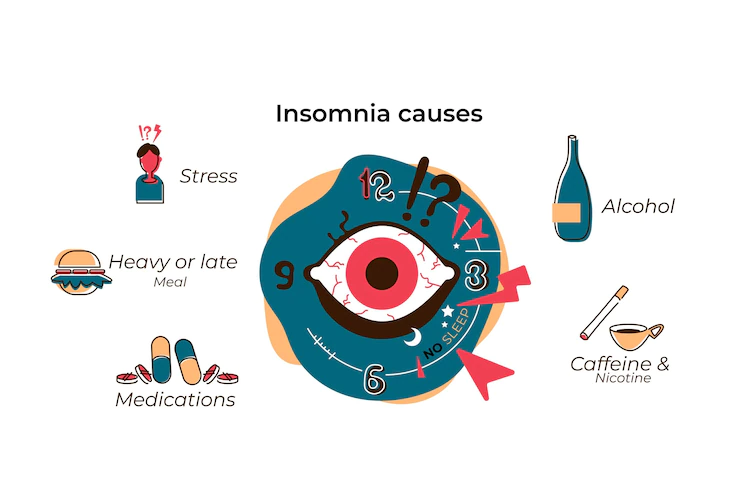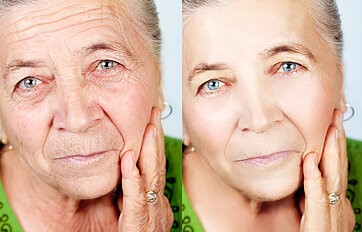Everything you need to Know about Cognitive Behavioral Therapy for Insomnia

It is not easy to have insomnia, but there are effective treatments such as Cognitive Behavioral Therapy for Insomnia that can help people get better sleep. So they can fall asleep, stay asleep, and feel rested.
What is Cognitive Behavioral Therapy?
Cognitive behavioral therapy is a form of treatment that is effective for a range of issues including depression, anxiety disorders, alcohol & drug abuse and marital problems.
Table of contents
- What is Cognitive Behavioral Therapy?
- Why Cognitive Behavioral Therapy for Insomnia?
- What are the different Techniques used in Cognitive Behavioral Therapy for Insomnia
- Is Cognitive Behavioral Therapy for Insomnia Effective?
- Who Provides Cognitive Behavioral Therapy for Insomnia?
- Tips for Sleeping With Insomnia
- Takeaway
Why Cognitive Behavioral Therapy for Insomnia?
Cognitive Behavioral Therapy is a treatment for insomnia that involves exploring the connection between how you think, what you do, and how you sleep.
CBT-I is a type of psychotherapy that helps to identify thoughts and behaviors that are negatively affecting your sleep. When this happens, a trained therapist will help.
Along with reading thoughts and feeling about sleep, the habits are tested to see if they are accurate and promote sleep.

It can take from 6 to 8 sessions of treatment, although it depends on the person. If given by a primary care doctor, treatment is often as short as 2 sessions.
Sessions in Cognitive Behavioral Therapy for Insomnia
Cognitive Behavioral Therapy for Insomnia is a multi-component treatment that includes some key techniques. These are
Cognitive interventions
Cognitive restructuring is a way of changing how you think about sleep. Those with parasomnias, for example, can alleviate the problems associated with their disorder by understanding what is happening to them and learning healthier ways to cope.
Behavioral interventions
This training program can help you relax and create healthier sleep habits.
Psychoeducational interventions
Providing mental health information about the connection between thoughts, feelings, and behaviors is what CBT-I is all about and will help you feel better.
What are the different Techniques used in Cognitive Behavioral Therapy for Insomnia
1. Cognitive Restructuring
In insomnia sufferers, inaccurate or dysfunctional thoughts about sleep may lead to behaviors that make sleep more difficult. This reinforces unhealthy thoughts and makes it harder to find a solution.
Excessive time in bed and worry are often symptoms of insomnia. These can make it more difficult to fall asleep and stay asleep.
Sleeping can be hard at times and it becomes a difficult habit to break. By restructuring thoughts & beliefs about sleep, cognitive therapy offers a way out of insomnia.
False beliefs are identified, challenged, and changed by trained providers who can help you identify them more objectively.
2. Stimulus Control
Insomnia sufferers often get trapped in a cycle that associates their bedroom with wakefulness, which can be tough. This is why stimulus control is so effective – it’s changing those conditioning thoughts and changing your bedroom back into a place of restful sleep.

The bed is only in use for sleep & sex when at treatment. Fresh clients get out of bed when it’s difficult to fall asleep or for any period longer than 10 minutes. They only come back in bed if they’re tired again.
You can wake up at the same time every day and discourage from taking daytime naps.
3. Sleep Restriction and Compression
You’ll need to keep a sleeping diary for some weeks to work out your average. The total time that you usually spend asleep needs to be added on, then 30 minutes should be set as the time in bed.
For instance, if someone is trying to sleep 8 hours a night but only managing 5 hours, the first thing they need to do is adjust their bedtime to 5 hours and 30 minutes. Once they start getting the majority of their time in bed sleeping, they can then gradually shift it an hour earlier until they finally hit that magical 8-hour mark.
Sleep compression is a gentler way of shifting your sleep patterns to match your life, usually for the elderly. Instead of trying to make you sleep the amount typical for someone your age, it reduces your time asleep over the course of months.
4. Relaxation Training
Techniques for calming down are necessary when you’re lying awake in bed. They can reduce racing thoughts and make you more relaxed, which is good for the body.
You should find a relaxation technique that will fit seamlessly into your lifestyle.
Here are a few relaxation techniques to try out:
- Breathing exercises are one of the major components of Cognitive Behavioral Therapy for Insomnia. They typically involve taking slow and steady breaths and can lead to increases in both heart rate and breathing. This can reduce the feeling
- Progressive muscle relaxation: PMR is a technique that focuses on the use of breathing as well as muscle tensing and relaxing to help calm and clear your mind. This can guide imagery to encourage a sense of peace within oneself.
- Autogenic training is the technique of focusing on body sensations, such as heaviness. It helps you rest and relaxes.
- Biofeedback helps track the body’s vitals, giving the wearer a better understanding of how their body is doing. It usually provides data on brain waves, heart rate, breathing and body temperature.
- Meditation is a great way to take a break from the stresses of life and regain some focus. Evidence shows that it can have a range of health benefits such as relieving stress, anxiety & more. It may also involve some practices that combine focused attention with movement
5. Psychoeducation
It is most important to educate clients on the importance of good sleep hygiene during CBT-I. This includes things like increasing practices that promote and support sleep while decreasing or eliminating those practices that discourage it.
Some topics that might be covered in this class are the effects that our eating, exercise, and sleeping environments have on whether we can sleep well. The reason for this is that creating an environment where you are about to sleep is one of the main factors which allow for a higher probability of it happening.
Is Cognitive Behavioral Therapy for Insomnia Effective?
This is a powerful technique for treating insomnia and some clinical studies have shown 70-80% of patients experience improvement.

There are many benefits to this treatment, including falling asleep more quickly, feeling more refreshed when you wake up and waking up less often. The benefits of this treatment often remain over time.
There are some patients in that Cognitive Behavioral Therapy for Insomnia is more effective than medications. This treatment is effective in groups that are at high risk of experiencing poor sleep, like pregnant people and people with PTSD.
Cognitive Behavioral Therapy for Insomnia (CBT-I) works effectively for many types of insomnia, including chronic insomnia.
It may take a bit to practice what you learn in treatment, but can achievesome things can be achieved with time. For example, sleep habits and how much you sleep can be adjusted over time.
CBT-I alone is not always enough to help with sleep issues so it’s worth talking to your doctor about using a sleep medication alongside CBT-I if the insomnia symptoms don’t improve.
Does Cognitive Behavioral Therapy for Insomnia Have Risks?
Talking about painful experiences and thoughts can be uncomfortable. Also, it may cause temporary stress or discomfort sometimes. These risks are likely to be mild and treatment is unlikely to do lasting harm.
Who Provides Cognitive Behavioral Therapy for Insomnia?
Cognitive Behavioral Therapy for Insomnia is usually prescribed by doctors, therapists, etc.
This is unfortunate because there’s a very high need for CBT-I professionals.
Above all, the latest research has led to the development of new formats of CBT-I, such as digital and group formats.
Tips for Sleeping With Insomnia
It’s important to be aware of the fundamentals of good sleep hygiene. Here are some basic tenets any person struggling with their sleep might find helpful.
- Maintain a sleep schedule: Going to bed and waking up around the same time can help your body maintain a rhythm and make it easier to fall asleep.
- Don’t waste long hours in bed unable to sleep. Get out of bed and do something relaxing until you’re feeling more tired again.
- Designing a nighttime routine is important. Give yourself enough time to get ready for bed and turn off electronics early. Have activities lined up that help you relax and wind down for sleep?
- Exercise is a day-time activity that is not to be overlooked. A short workout can improve the quality of your sleep and make you feel more energetic throughout the day.
- Try to avoid eating, drinking, and consuming caffeine close to bedtime.
Takeaway
Cognitive Behavioral Therapy for Insomnia therapists focus more on what is going on during the current timeline of a person’s life, rather than what has led to their difficulties. There needs to be a certain level of information about the individual’s history, but the main emphasis is mainly on moving forward in time to help them improve
Products That We Suggest for you
Nootrogen: Dietary Supplement Supporting Cognition, Focus and Memory
The Nootrogen is a nutritional supplement that supports your memory, concentration, motivation and cognitive patterns. It helps you to make the most of your mental energy
To know more and purchase, Click Here
Mushroom Defense -Boost Immune System
Fighting Fatigue & Shielding Against Cognitive Decline
To know more and purchase, Click Here








Comment to this Article
Comments that encourage respectful conversation are welcomed at AGP Health n Beauty. Stay on subject, please. Comments that are aggressively promotional of goods or services or that include personal attacks, vulgar language, or other forms of abuse will be deleted. Which remarks break our comment policy will be decided at our discretion. (Anonymous comments are accepted; just leave out your name in the comment box. Although necessary, your email address won't be posted with your comment.)